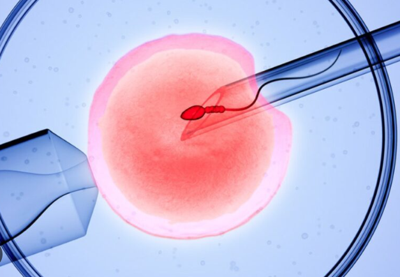
Among reproductive medicine, In Vitro Fertilization (IVF) is a glimmer of hope for countless couples desiring to have a child. Throughout all these years, IVF has gone through its trials and tribulations to perfect the knack of life. Preimplantation Genetic Testing (PGT) became essential in turning this beautiful journey into unforgettable memories with better success rates and results. Knowing exactly what situations or conditions medical professionals look into before recommending PGT is handy for anyone currently picking the right journey for their IVF.
Understanding Preimplantation Genetic Testing
Before discussing the recommendations in detail, you must understand the basics of PGT in IVF. PGT is a sophisticated screening process for genetic abnormalities within embryos before implantation. By detecting potential issues early, it seeks to improve the likelihood of pregnancy and reduce the symptoms of genetic disorders.
There are different types of PGT, such as Preimplantation Genetic Screening (PGS) and Preimplantation Genetic Diagnosis (PGD). PGS looks at chromosomal abnormalities, while PGD targets genetic conditions. They both provide helpful information regarding embryo viability during IVF.
So, Why Do Doctors Recommend PGT?
PGT is offered in specific circumstances to help improve the chances of successful IVF with the best embryo transfer. There are illnesses, of course, but the primary reason is getting older during motherhood. With age, the odds of chromosomal abnormalities in embryos rise. These abnormalities can lead to miscarriage or affect the chance of pregnancy with a live birth, and so PGT can be very useful for screening of these factors.
PGT in IVF also becomes helpful in the setting of recurrent pregnancy loss. Genetic testing may hold the key for couples struggling with recurrent miscarriage. PGT can protect from the emotional and financial strain of countless miscarriages by recognizing suitable embryos. Also, PGT may be an option for those with a family history of genetic disorders. Couples who know they carry diseases they may pass on to future offspring can use this technology. PGT provides the comfort of knowing that embryos are devoid of certain hereditary genetic defects.
Why is PGT Recommended?
The reasons for suggesting PGT are much broader than just picking the proper embryo. Increasing the implantation rates as well as reducing the risk of miscarriage leads to improved IVF success. Thanks to PGT, doctors can determine which embryos have the best chance of a successful implantation and help hopeful fathers and mothers embark on the journey of parenthood with the greatest of ease.
PGT also focuses on brevity with users so that they can be well informed. Knowledge of embryonic DNA can help ease worries and instill confidence during IVF treatment. This approach breeds confidence and allows couples to start their journey into parenthood with clarity.
Moreover, PGT helps provide more personalized make-up for IVF. Genetic findings allow for the tailoring of treatment plans, thus allowing medical practitioners to optimize protocols to improve outcomes and reduce risk. This personalization means that each couple receives care tailored to their specific situation.
Ethical Considerations
As PGT brings several benefits, its applications have also raised ethical questions. Couples could choose embryos based on their genetic characteristics, which opens a can of worms in terms of designer babies and social implications. Medical professionals have also warned against using PGD for non-medical purposes and reiterated the importance of careful and responsible use of this technology.
An open dialogue between the patient and healthcare provider becomes vital in clearing up any ethical dilemmas in this scenario. Communicating those worries and aspirations enables couples to discover an option that suits their ideals. Transparency and understanding create one of the most supportive environments to ensure you handle the ethical argument delicately and compassionately.
The Future of PGT in IVF
The application of PGT in IVF is growing as the technology advances. Studies are ongoing to make testing more accurate and cheaper. Further advances may allow for even more specific detection of genetic defects, thus continuing to improve IVF success rates.
With genetic testing becoming more readily available, it may be a matter of time before doctors use such interventions more widely in reproductive medicine. With all the advancements, the field of PGT is evolving and provides new hope for parents-to-be seeking to clear genetic hurdles on their journey to parenthood.
With these and many other advantages, PGT is a revolutionary instrument in IVF, providing invaluable information and improving the possibility of conception. Knowing when and why doctors suggest PGT helps people clarify and confidently navigate their reproductive options. With the ever-changing landscape of reproductive medicine, PGT will undoubtedly play a vital role in the future of fertility medicine by helping many more realize their dream of parenthood.


(0) comments
We welcome your comments
Log In
Post a comment as Guest
Keep it Clean. Please avoid obscene, vulgar, lewd, racist or sexually-oriented language.
PLEASE TURN OFF YOUR CAPS LOCK.
Don't Threaten. Threats of harming another person will not be tolerated.
Be Truthful. Don't knowingly lie about anyone or anything.
Be Nice. No racism, sexism or any sort of -ism that is degrading to another person.
Be Proactive. Use the 'Report' link on each comment to let us know of abusive posts.
Share with Us. We'd love to hear eyewitness accounts, the history behind an article.